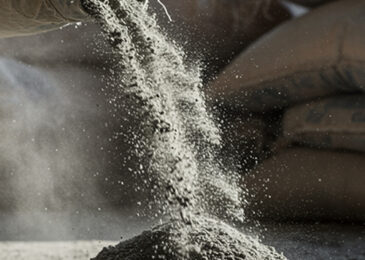
When it comes to construction, choosing the right type of cement is crucial to ensure the longevity and strength of a structure. You’ll often come across two popular options: OPC (Ordinary Portland Cement) and PPC (Portland Pozzolana Cement). While both serve the same primary purpose, they have distinct properties that make each suitable for different applications. In this blog, we’ll break down the differences between OPC and PPC cement and help you understand which might be the best for your project.
What is OPC Cement?
Ordinary Portland Cement (OPC) is the world’s most widely used type of cement. It is made by grinding limestone and other raw materials into a fine powder and then heating them in a kiln at high temperatures. OPC is known for its quick setting time and high initial strength, making it a go-to choice for construction projects that must be completed quickly.
Features of OPC Cement:
- Quick setting time: OPC sets faster, making it ideal for projects that require rapid completion.
- High initial strength: It gains strength rapidly in the first few weeks after curing.
- Widely used: OPC is commonly used in general construction projects such as bridges, roads, and high-rise buildings.
- Grades available: OPC is available in 43, 53, and 53-S grades, with higher numbers indicating higher strength.
What is PPC Cement?
Portland Pozzolana Cement (PPC) is made by blending OPC with pozzolanic materials such as fly ash, volcanic ash, or silica. These materials react with calcium hydroxide produced during the cement’s hydration process, making PPC more durable. It is known for its longer setting time but superior long-term strength and durability.
Features of PPC Cement:
- Longer setting time- PPC takes slightly longer than OPC, but this can benefit large or complex structures.
- Better durability—Over time, PPC becomes more resistant to chemicals and moisture, making it ideal for structures exposed to harsh environmental conditions.
- Lower heat of hydration- PPC generates less heat during curing, reducing the risk of cracks in large structures.
- Eco-friendly- Using industrial by-products like fly ash in PPC makes it a more environmentally friendly option.
Critical Differences Between OPC and PPC Cement
1.Composition:
- OPC is composed mainly of limestone, clay, and gypsum.
- PPC contains the same base materials as OPC but is blended with pozzolanic materials like fly ash.
2.Strength:
- OPC gains strength faster than PPC during the initial weeks.
- PPC takes more time to develop strength but offers better durability over the long term.
3.Durability:
- OPC suits dry conditions but may be less durable in environments exposed to moisture, chemicals, or coastal areas.
- PPC is more durable in harsh conditions, making it the better option for marine structures or constructions in high-sulfur areas.
4.Heat of Hydration:
- OPC releases more heat during the hydration process, which can lead to cracking in massive structures.
- PPC generates less heat, reducing the risk of thermal cracks.
5.Cost:
- OPC is generally more expensive due to its quick setting time and higher initial strength.
- PPC is more cost-effective, especially in large-scale projects where long-term strength and durability are essential.
Which is Best for Your Project?
The choice between OPC and PPC cement depends on the specific needs of your project.
1.Use OPC Cement if:
- Your project requires fast construction or high early strength, such as roads, bridges, or high-rise buildings.
- You are working in dry conditions where moisture or chemical exposure is not a concern.
2.Use PPC Cement if:
- Durability is a priority, especially for structures exposed to water, chemicals, or coastal environments.
- You want an eco-friendly option that uses industrial by-products.
- You are working on large structures where the risk of thermal cracks needs to be minimised.
Conclusion
Both OPC and PPC cement have their advantages and are suitable for different types of construction. OPC is best for projects that require quick completion and high early strength, while PPC is ideal for long-term durability, especially in challenging environments. Builders and dealers should carefully evaluate the needs of their specific projects before choosing between these two types of cement. Among the best cement companies in India, NCL Industries stands out for its commitment to quality, offering both OPC and PPC cement to meet diverse construction needs
If you’re still unsure which cement is best for your next project, consult with a professional or supplier for advice based on your unique construction needs. When used in the right context, both OPC and PPC can deliver excellent results that last.


